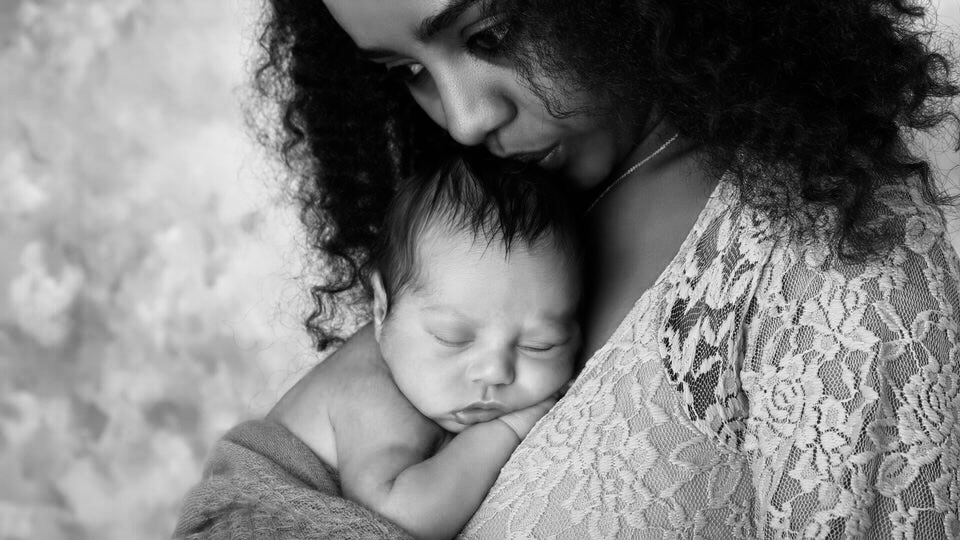When it comes to mental health, recognizing and being aware of our feelings and emotions is essential to long-term wellness, particularly for mothers after giving birth. While feelings are part of the human condition, often they can surge into extremes, causing a mother to experience postpartum depression (PPD).
Dr. Pari Ghodsi, an obstetrician-gynecologist in Northridge, California, defines PPD as intense sadness where the mother doesn’t feel like doing anything or feels continuously trapped. PPD is also determined by the amount of time a mother experiences negative feelings. It is normal for moms to start feeling sad and anxious for a few weeks post-birth–this is often referred to as postpartum blues–but when these feelings linger into months or a year, the mother is experiencing PPD.
According to the National Institute of Mental Health, in the United States, fifteen percent of women reported suffering from postpartum depression (PPD) due to a myriad of hormonal imbalances, psychological changes, and sleep deprivation. But the real problem lies in PPD being a taboo topic. Many women feel shame and frequently suffer quietly alone, due to society showcasing and perpetuating the “happiest mom ever” image.
Well, here is my experience to share with other moms: After the birth of my first child, I relished in the new joy of my daughter while also struggling to comprehend the comingling of emotions I was experiencing, from happy to sad to downright drained. I did seek the guidance of my OB/GYN who handed me a pamphlet with support numbers, but when you’re in the heat of intense hormonal changes, dialing a number can prove grueling.
I did attend some new-mom groups but often found those environments more difficult to manage versus mentally rewarding. Some new friendships were gained while other groups were hijacked by judgment, unnecessary comparison, and negativity from other mothers. This level of toxicity only added to the challenges of new motherhood and to my mental stability.
At a time when I felt low and somber, I found my only option was to venture to the countryside with my mother to seek organic and continual support. The change in landscape did help, but extreme feelings lingered as I charged through each day coping from the aftermath of a strangled friendship, being a lone parent each week as my husband traveled for work, and my struggles with breastfeeding and producing milk. Often times, I cried alone and mentally escaped to exercise videos and walks with the family dog to air out my brain. And when moments felt rough, I did address some of the underlying issues to my mother but kept the brunt of the matter to myself. My goal was to be strong for my daughter and to cognitively find a way back to “normalcy.”
As the months passed, my husband and I agreed to move to a new region for a fresh start as a family. Uprooting and escaping is not the ideal answer to mental predicaments, but in our case, he had a new career opportunity that proved the next best step. After we settled in our new location, I noticed my sadness heal as I forged a strong commitment to mindfulness exercises and becoming immersed in religious studies as a source of guidance and perspective. I started studying Kundalini meditation and yoga, journal writing, and reading books by inspiring authors. To this day, each of these activities has offered healing, growth, and personal development while being surrounded by supportive and loving people. At times I wish my aspiration for therapeutic sources triggered shortly after the birth of my first child, but I continually remind myself that lessons are learned by making it through tough times.
I acknowledge that mindfulness alone cannot necessarily combat postpartum depression in many women. However, based on my personal experience, mindfulness commingled with religion helped me heal and make different choices during my second pregnancy. One major life-changer has been enlisting the assistance of a prenatal/postnatal therapist. Incorporating weekly therapy into my wellness plan has allowed me to better manage as a wife, mother, daughter, and community member. I gave birth to my second child recently, and I am hopeful that continuing with therapy, mindfulness, and religion will help me better manage my postpartum phase in the months ahead.
The chapter after giving birth is unquestionably the uttermost taxing for most women. Nevertheless, it is also a harmonious time that may offer one insight and introspection. Remember this, self-care is integral to both the mom and baby’s health, and one should never feel ashamed to ask for help or guidance. Together, let’s end the taboo around openly discussing postpartum depression and postpartum blues, and continue sharing resources and stories to support our fellow moms.

